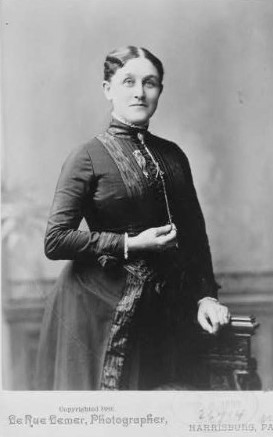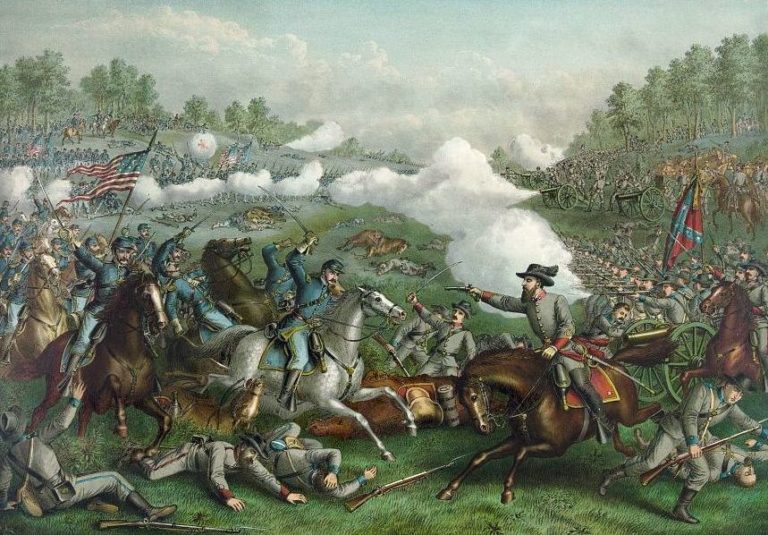
Rebecca Wright: Civil War Spy
August 1864, General Grant sent General Phil Sheridan’s cavalry corps to the Shenandoah Valley. It’d been a spring and summer of stand-offs, slow advances, and many lost lives. Lincoln needed a victory if he hoped to quiet the voices that called for peace talks and if he wanted win the upcoming election.
In response, Sheridan sent out 120 scouts to ascertain enemy strength and to establish connections to Unionists. Sheridan needed to attack Winchester, the seat of the lower valley, but even with all of his scouts, he couldn’t ascertain how many troops General Jubal Early had in the city, and he was worried that Confederate reinforcements could be coming any day from Richmond.
One of his scouts told him about Thomas Laws, an elderly slave, loyal to the Union, who had a permit to enter Winchester three times a week to sell produce. Laws could get in and out of the city, but he wasn’t familiar with the goings-on of the Rebels in Winchester.
Sheridan needed someone else who could provide solid information before he risked the lives of tens of thousands of men in battle. General Crook recommend Rebecca Wright, a Quaker school teacher who had been fired from her job for her Unionist views. (Crook had stayed at her boarding house previously when the Union Army had been in Winchester.)
Rebecca lived with her mother who supported her views and with her pro-Confederate sister. Her father had perished in a Confederate prison.
Sheridan agreed and persuaded Laws to carry a message to Rebecca, a tissue-paper letter wrapped in foil which Laws carried in his mouth as he passed through Rebel pickets and gate into the city. Sheridan told him to swallow it if he was searched by Rebels.
When Laws, a stranger to Rebecca, knocked on her door on September 16th and took the foil pellet out of his mouth, Rebecca was startled. Away from prying eyes, she read the letter:
“I learn from Major-General Crook that you are a loyal lady, and still love the old flag. Could you tell me the position of Early’s forces, and the divisions in his army, and the strength of any or all of them, and his probable or reported intentions? Have any more troops arrived from Richmond, or are any more coming, or reported to be coming? You can trust the bearer.” Signed, General Sheridan.
For all Rebecca knew, this could be a trick by her enemies to test her loyalty. If caught helping the Yankees, she could be hung. She had a decision to make. Was she going to risk her life for her country?
The Lord had provided the information for her. The day before, a wounded Confederate soldier who was boarding nearby came calling on her. In his desire to fill in the awkward gaps in their conversation, he had talked much about the war and the Confederate Army.
That afternoon after Laws’s visit Rebecca wrote down the information the Rebel has shared the day before. Her message to Sheridan read: “I will tell you what I know. The division of General Kershaw, and Cutsaw’s artillery … have been sent away, and no more are expected, as they cannot be spared from Richmond. I do not know how the troops are situated, but the force is much smaller than represented. I will take pleasure hereafter in learning all I can of their strength and position. And the bearer may call again.”
Laws, who was also risking his life, came back by at the appointed time, wrapped the new message in the foil, and returned it to his mouth.
Three days later, Sheridan attacked, a horrific battle with heavy cannonading. Rebecca alternatively worried that the battle was because of her and that maybe Sheridan hadn’t gotten her message. Houses around them burned as she and her mother huddled in the cellar. Rebecca later stated that “It was the most terrible day of her experience.”
The Yankees won the day, although the losses were heavy: 5,020 Union casualties and 3,610 Confederates.
After the battle, two generals knocked on her door, General Sheridan and General Crook. Sheridan greeted her as “the woman who had done so much to contribute to our success” and told her “that it was entirely from the information [she] had sent him that he’d fought the battle.” He said that “he’d never forget [her] courage and patriotism.”
The Third Battle of Winchester was considered by many to be the most important battle fought in the Shenandoah Valley. The victory led to the Yankees securing the whole valley and helped push Lincoln toward another term as president.
Rebecca begged Sheridan not to tell anyone about her role until after the war.
Sheridan kept his word during the war, but three years later in 1867, he sent a letter to her via General Forsythe commending her and thanking her once again for her bravery. As a reward, he included a watch and chain for her, and on the back of the letter was a note from General Grant recommending her for a position with the U.S. Treasury.
Unfortunately, someone leaked the letter to the local newspaper. The townspeople, of whom the vast majority were pro-Southern, “went wild.” Rebecca was a “traitor” as far as they were concerned. Her mother lost all of her boarding house customers, Rebecca lost the small teaching job she’d acquired, and boys spat on her in the streets. She and her family became outcasts, with no means of support.
But the Lord provided. Two years later when Grant became president, Grant appointed Rebecca to the Treasury Department. Her family moved to Washington, and she became a career woman in an era when they were almost non-existent. Within a few months, she fell in love with a Union veteran, and they married. However, she remained in her job for forty-seven years. Her reward for risking her life for what she believed in.
Sources:
“Rebecca Wright.” Shenandoah Battlefields National Historic District. https://www.shenandoahatwar.org/rebecca-wright
Winkler, H. Donald. Stealing Secrets. Source Books, 2010.


5 thoughts on “Female Spy Saves the Day”
Sherry,
And General Crook ended up fighting Indian Wars in the Great Plains. He became part of the trial of Standing Bear, which affirm that Native Americans are people in the eye of the law (which I wrote about in Through Rushing Water).
That’s really cool. That makes me like him even better. I haven’t heard about Standing Bear. Now I’m eager to research him and check out your book:)
This is a wonderful true story.:)
Thank you for stopping by, Kathy. I enjoy spy stories, especially ones from the 18th or 19th century, and stories of people who are willing to put themselves at risk for what they believe in.
Sherry, your posts are always so interesting! Thank you for sharing!
Comments are closed.